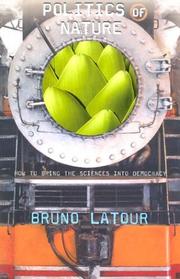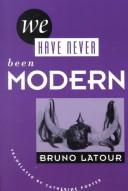| Listing 1 - 10 of 61 | << page >> |
Sort by
|

ISBN: 1840007230 Year: 2003 Publisher: London Miller
Abstract | Keywords | Export | Availability | Bookmark
 Loading...
Loading...Choose an application
- Reference Manager
- EndNote
- RefWorks (Direct export to RefWorks)
Book collecting --- 090.1 <036> --- 379.824 --- 655.534 --- 820 "19" --- 379.824 Verzamelen als hobby --- Verzamelen als hobby --- 820 "19" Engelse literatuur--20e eeuw. Periode 1900-1999 --- Engelse literatuur--20e eeuw. Periode 1900-1999 --- 090.1 <036> Bibliofilie--Gidsen. Inleidingen --- Bibliofilie--Gidsen. Inleidingen --- Stofomslag. Cover. Boekomslag --- Great Britain --- United States --- Book history --- anno 1900-1999

ISBN: 1857325435 Year: 1996 Publisher: London Reed
Abstract | Keywords | Export | Availability | Bookmark
 Loading...
Loading...Choose an application
- Reference Manager
- EndNote
- RefWorks (Direct export to RefWorks)
09 <036> --- 090.1 <036> --- 379.824 --- 379.824 Verzamelen als hobby --- Verzamelen als hobby --- 090.1 <036> Bibliofilie--Gidsen. Inleidingen --- Bibliofilie--Gidsen. Inleidingen --- 09 <036> Handschriften. Oude en merkwaardige drukken. Curiosa--Gidsen. Bijzonderheden m.b.t. het boek --- Handschriften. Oude en merkwaardige drukken. Curiosa--Gidsen. Bijzonderheden m.b.t. het boek --- Book history
Book
ISBN: 9004524711 Year: 2022 Publisher: Liverpool : BRILL,
Abstract | Keywords | Export | Availability | Bookmark
 Loading...
Loading...Choose an application
- Reference Manager
- EndNote
- RefWorks (Direct export to RefWorks)
"'She burst across the revolutionary sky like a blazing meteor, dazzling all in her path,' Trotsky wrote. For the poet Boris Pasternak, she was Lara, the heroine of his novel Doctor Zhivago. Commissar, revolutionary fighter, espionage agent, journalist, Larisa Reisner (1895-1926) was a model for the 'new woman' of the Russian Revolution, and one of its most popular and brilliant writers, whose works were published in mass editions and read by millions. Her life is set against the world-shaking events of 1917, and draws on material recently released from the Soviet archives to tell her story through the memories of those close to her, her own voluminous writings, and her six books, published for the first time together by Brill with this biography"--
Book
ISBN: 9780674724990 0674724992 9780674984028 Year: 2013 Publisher: Cambridge (Mass.) Harvard University Press
Abstract | Keywords | Export | Availability | Bookmark
 Loading...
Loading...Choose an application
- Reference Manager
- EndNote
- RefWorks (Direct export to RefWorks)
In this new book, Bruno Latour offers answers to questions raised in We Have Never Been Modern, a work that interrogated the connections between nature and culture. If not modern, he asked, what have we been, and what values should we inherit? Over the last twenty-five years, Latour has developed a research protocol different from the actor-network theory with which his name is now associated—a research protocol that follows the different types of connectors that provide specific truth conditions. These are the connectors that prompt a climate scientist challenged by a captain of industry to appeal to the institution of science, with its army of researchers and mountains of data, rather than to “capital-S Science” as a higher authority. Such modes of extension—or modes of existence, Latour argues here—account for the many differences between law, science, politics, and other domains of knowledge.Though scientific knowledge corresponds to only one of the many possible modes of existence Latour describes, an unrealistic vision of science has become the arbiter of reality and truth, seducing us into judging all values by a single standard. Latour implores us to recover other modes of existence in order to do justice to the plurality of truth conditions that Moderns have discovered throughout their history. This systematic effort of building a new philosophical anthropology presents a completely different view of what Moderns have been, and provides a new basis for opening diplomatic encounters with other societies at a time when all societies are coping with ecological crisis.
Philosophical anthropology --- onderzoeksmethoden --- cultuurgeschiedenis --- wijsgerige antropologie --- Civilization, Modern --- cultuurfilosofie --- 39 --- filosofie --- sociologie --- 130.2 --- antropologie --- Anthropology, Philosophical --- Man (Philosophy) --- Civilization --- Life --- Ontology --- Humanism --- Persons --- Philosophy of mind --- Philosophy. --- Philosophy --- #SBIB:316.23H1 --- #SBIB:39A3 --- Kennissociologie --- Antropologie: geschiedenis, theorie, wetenschap (incl. grondleggers van de antropologie als wetenschap) --- 316.75:001 --- 316.75:001 Wetenschapssociologie --- Wetenschapssociologie
Book
ISBN: 0710214219 Year: 1988 Publisher: London Routledge and Kegan Paul
Abstract | Keywords | Export | Availability | Bookmark
 Loading...
Loading...Choose an application
- Reference Manager
- EndNote
- RefWorks (Direct export to RefWorks)
Literature --- Criticism --- Critique --- History --- Histoire --- 82.09 --- Literaire kritiek --- 82.09 Literaire kritiek --- Letterkunde

ISBN: 0674013476 0674012895 Year: 2004 Publisher: Cambridge (Mass.) : Harvard university press,
Abstract | Keywords | Export | Availability | Bookmark
 Loading...
Loading...Choose an application
- Reference Manager
- EndNote
- RefWorks (Direct export to RefWorks)

ISBN: 074501321X 0745006825 9780674948396 Year: 1993 Publisher: New York (N.Y.) : Harvester Wheatsheaf,
Abstract | Keywords | Export | Availability | Bookmark
 Loading...
Loading...Choose an application
- Reference Manager
- EndNote
- RefWorks (Direct export to RefWorks)
Sociology of culture --- #SBIB:316.23H2 --- 316.75:001 --- Sociologie van de wetenschappen --- Wetenschapssociologie --- 316.75:001 Wetenschapssociologie --- 813 Methodologie --- 811 Filosofie
Book
ISBN: 9780745684338 0745684335 9780745684345 0745684343 9780745684376 Year: 2017 Publisher: Cambridge Polity
Abstract | Keywords | Export | Availability | Bookmark
 Loading...
Loading...Choose an application
- Reference Manager
- EndNote
- RefWorks (Direct export to RefWorks)
"The emergence of modern sciences in the seventeenth century profoundly renewed our understanding of Nature. For the last three centuries new ideas of Nature have been continuously developed by theology, politics, economics, and science, especially the sciences of the material world. The situation is even more unstable today, now that we have entered an ecological mutation of unprecedented scale. Some call it the Anthropocene, but it is best described as a new climatic regime. And a new regime it certainly is, since the many unexpected connections between human activity and the natural world oblige every one of us to reopen the earlier notions of Nature and redistribute what had been packed inside. So the question now arises: what will replace the old ways of looking at Nature? This book explores a potential candidate proposed by James Lovelock when he chose the name "Gaia" for the fragile, complex system through which living phenomena modify the Earth. The fact that he was immediately misunderstood proves simply that his readers have tried to fit this new notion into an older frame, transforming Gaia into a single organism, a kind of giant thermostat, some sort of New Age goddess, or even divine Providence. In this series of lectures on "natural religion", Bruno Latour argues that the complex and ambiguous figure of Gaia offers, on the contrary, an ideal way to disentangle the ethical, political, theological, and scientific aspects of the now obsolete notion of Nature. He lays the groundwork for a future collaboration among scientists, theologians, activists, and artists as they, and we, begin to adjust to the new climatic regime"--
Gaia hypothesis. --- Philosophy of nature. --- Nature in literature. --- Climatic changes --- Philosophical anthropology. --- Nature --- SCIENCE / Philosophy & Social Aspects. --- Philosophy. --- Effect of human beings on. --- Science / philosophy & social aspects. --- Philosophy of nature --- Environmental protection. Environmental technology --- 551 --- 504 --- 504 Environment. Environmental science --- Environment. Environmental science --- 551 General geology. Meteorology. Climatology. Historical geology. Stratigraphy.Paleogeography. --- General geology. Meteorology. Climatology. Historical geology. Stratigraphy.Paleogeography.

ISBN: 9780674013476 0674039963 9780674039964 0674013476 9780674012899 0674012895 Year: 2004 Publisher: Cambridge, Mass. Harvard University Press
Abstract | Keywords | Export | Availability | Bookmark
 Loading...
Loading...Choose an application
- Reference Manager
- EndNote
- RefWorks (Direct export to RefWorks)
A major work by one of the more innovative thinkers of our time, Politics of Nature does nothing less than establish the conceptual context for political ecology--transplanting the terms of ecology into more fertile philosophical soil than its proponents have thus far envisioned. Bruno Latour announces his project dramatically: "Political ecology has nothing whatsoever to do with nature, this jumble of Greek philosophy, French Cartesianism and American parks." Nature, he asserts, far from being an obvious domain of reality, is a way of assembling political order without due process. Thus, his book proposes an end to the old dichotomy between nature and society--and the constitution, in its place, of a collective, a community incorporating humans and nonhumans and building on the experiences of the sciences as they are actually practiced. In a critique of the distinction between fact and value, Latour suggests a redescription of the type of political philosophy implicated in such a "commonsense" division--which here reveals itself as distinctly uncommonsensical and in fact fatal to democracy and to a healthy development of the sciences. Moving beyond the modernist institutions of "mononaturalism" and "multiculturalism," Latour develops the idea of "multinaturalism," a complex collectivity determined not by outside experts claiming absolute reason but by "diplomats" who are flexible and open to experimentation.
Political ecology. --- Social ecology --- Green movement --- Green movement. --- Human ecology. --- Science --- Science and society --- Sociology of science --- Ecology --- Environment, Human --- Human beings --- Human environment --- Ecological engineering --- Human geography --- Nature --- Ecologism --- Environmental action groups --- Environmental groups --- Environmentalism --- Political ecology --- Sustainable living --- Social aspects. --- Social aspects --- Effect of environment on --- Effect of human beings on
Book
ISBN: 0801492882 9780801492884 Year: 1984 Publisher: Ithaca, N.Y. Cornell University Press
Abstract | Keywords | Export | Availability | Bookmark
 Loading...
Loading...Choose an application
- Reference Manager
- EndNote
- RefWorks (Direct export to RefWorks)
Rhetoric --- Semiotics --- Rhétorique --- Sémiotique --- Language and languages --- Speaking --- Authorship --- Expression --- Literary style --- Semeiotics --- Semiology (Linguistics) --- Semantics --- Signs and symbols --- Structuralism (Literary analysis)
| Listing 1 - 10 of 61 | << page >> |
Sort by
|

 Search
Search Feedback
Feedback About
About Help
Help News
News